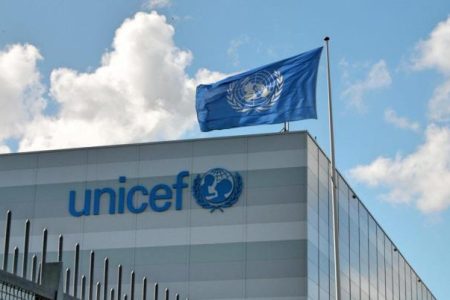The federal government of Nigeria has started an evaluation of the progress made in bringing back to operation Primary Healthcare Centers (PHCs) both at the national and state levels in an effort to further improve healthcare services in Nigeria.
The National Primary Healthcare Development Agency (NPHCDA), the World Health Organization (WHO), the United Nations Children’s Fund (UNICEF), the Bill and Belinda Gates Foundation, and the Dangote Foundation collaborated on the exercise, which had the goal of conducting a peer review of the infrastructure and resource deployment at all of the primary healthcare centers throughout the nation.
The project’s goal was to evaluate the primary centers’ facilities using an impartial panel of seasoned experts who would assign scores based on their performance.
The Federal government said that about 4,000 healthcare centres out of the targeted 10,000 have been renovated so far.
Speaking in an interview shortly after inaugurating the 14-member panel of judges in Abuja at the weekend, the NPHCDA Executive Director, Dr. Faisal Shuaib, said that their job is to help pick the best performing state governor in the area of development of primary healthcare centres in the country.
Shuaib said: “Today what we are doing is inaugurating an independent panel of judges that will be assessing primary healthcare facilities in Nigeria. What we are trying do here is collaborating with the Bill and Linda Gate Foundation, Aliko Dangote Foundation, Nigeria Governors Forum, UNICEF, WHO and so many other partners to give special attention the primary healthcare.
“With all of the investments we seen in the primary healthcare sector, especially at the subnational level, we have not seen a commensurate improvement in the rate of maternal and child mortality.”
Shuaib said that panel is being chaired by a professor from the Ahmadu Bello University, Zaria, Professor Clara Ejembi, with so many eminent Nigerians that are members.
He said that though there have been some improvement in the area of development of hospital infrastructure, but these improvements have not translated into any significant improvement in healthcare delivery.
“So what we are trying to do is to set in motion a kind of peer review mechanism among the states so that they will follow specific indicators that will be measured by an independent verification agent with the aim promoting competition among the states These independent panel of judges will look at the assessment results and announce which of the states that has done very well.
“On what indicators the judges will be looking at how various states have been able to develop and implement their policies on primary healthcare, how they have been able to finance it, provide human resources and also how the governors have been able to prioritize primary healthcare,” he said.
NPHCDA boss said that every primary healthcare centre in the country will.be part of the assessment.
He explained that past experience has shown that the leadership challenge among the governors was able to spur performance during the campaign to improve child immunisation and polio eradication in the country.
“So it is the success that we see in the immunisation challenge that we are replicating in this primary healthcare challenge. What we are doing today is part of the efforts to revitalise the primary healthcare.
“We have seen a situation where over 4,000 PHCs have been renovated but the president’s idea is just about renovation of primary healthcare centres or building new ones, what he flagged off in 2017 was a noble idea to make this primary healthcare centres functional and making sure that they have the right human resource compliments and the drugs to deliver quality and affordable healthcare to Nigerians,” Shuaib said.
The United Nations International Children’s Emergency Fund, (UNICEF) Country Representative in Nigeria, Ms. Cristian Munduate, said that she is delighted to be part of the historic partnership to drive the state ownership and implementation of key primary health care initiatives and policies, including the basic health care provision from the primary health care under one roof and the Seattle declaration.
She said: “This meeting sets the marking and the base and that is why the narration of the independent judging panel will guide and will directly review and validate state performance to ensure that this initiative remains transparent, credible and relevant. I wish to reiterate UNICEF’s commitment to sustain the momentum generated by the launch of the leadership challenge back in Lagos.
“It is important to remember that almost all of the 36 states governors attended the launch in person to rate the rate, their earlier commitment to lead the initiative. UNICEF is ready to collaborate with Nigeria and all its partners to ensure that Nigeria has access to a full package of essential and quality health services without suffering financial hardships.
Speaking on behalf other members of the assessment panel, Agembi said that the exercise is well thought out initiative that would no doubt instigate improvement in healthcare delivery system in the country.
“For us, I think it is a very significant and important role that we are going to play. We appreciate the confidence that has been reposed in us and assure Nigerians that we will work hard to accountably, transparently and politically validate and assess the performance of the state governors in terms of their efforts to reposition the primary healthcare centres in their states.
“This move will begin to change the face things with regards to our desire to achieve universal health coverage.”
